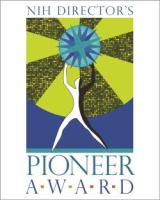2017 Awardees
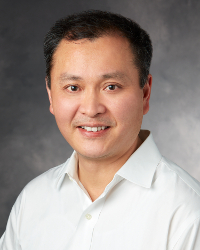
Hongjie Dai, Ph.D.
Stanford University
Project Title: Human Infrared Vision at Molecular and Cellular Scale
Grant ID: DP1-NS105737
Hongjie Dai is the J. G. Jackson and C. J. Wood Professor of Chemistry at Stanford University. He obtained his bachelor’s degree in Physics from Tsinghua University, a master’s degree in Applied Sciences from Columbia University, a Ph.D in Applied Physics/Physical Chemistry from Harvard University and performed postdoctoral research with Richard Smalley at Rice University. Dai works at the interface of chemistry, materials sciences, and biomedical sciences, with a strong interest in advancing nanoscience based infrared vision for biological imaging and detection to address fundamental and practical problems in neuroscience, cancer and cardiovascular diseases. Dai’s previous work on carbon based nanosciences were recognized by election to member of the National Academy of Sciences, Fellow of the American Academy of Arts and Sciences, and recipient of the American Physical Society James McGroddy Prize for New Materials, the American Chemical Society Pure Chemistry Award and the Materials Research Society Mid-Career Researcher Award.
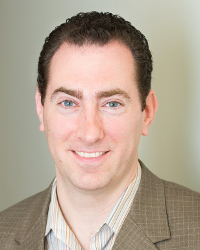
Amit Etkin, M.D., Ph.D.
Stanford University
Project Title: A “Circuits-First” Platform for Personalized Neurostimulation Treatment
Grant ID: DP1-MH116506
Funded by the National Institute of Mental Health
Amit Etkin is an Associate Professor in the Department of Psychiatry and Behavioral Sciences at Stanford, a member of the Stanford Neurosciences Institute, and an Investigator at the Palo Alto VA. He is trained as both as a neuroscientist and psychiatrist. The overarching aim of the Etkin lab is to understand the neural basis of emotional disorders and their treatment, and to leverage this knowledge to better understand how the brain works and to develop novel treatment interventions. In support of this goal, Dr. Etkin also collaborates with neuroscientists, engineers, psychologists, physicians and others to establish a new intellectual, scientific and clinical paradigm for understanding and manipulating human brain circuits in healthy individuals and for treating psychiatric disease.

Howard A. Fine, M.D.
Weill Cornell Medicine
Project Title: Human Brain Cancer, Rather than Brain Cancer Cells, on a Plate
Grant ID: DP1-CA228040
Howard A. Fine, M.D. is the Feil Professor of Medicine, Director of the Brain Tumor Center and Associate Director of Translational Research at the Meyer Cancer Center, Weill Cornell Medicine. Dr. Fine’s 29-year career has been devoted almost exclusively to translational research and developmental therapeutics for glioblastoma. His laboratory was one of the first to isolate and propagate primary patient-derived glioma stem cells in vitro, with his most recent work devoted to modeling in vitro patient specific glioblastoma's using patient induced pluripotent cell-derived cerebral organoids and glioma stem cells. Dr. Fine trained in internal medicine at the Hospital the University of Pennsylvania and then completed a clinical and research fellowship in medical oncology at the Dana-Farber Cancer Institute (DFCI) at Harvard Medical School. Dr. Fine was one of the founders and Director of the DFCI Neuro-Oncology Disease Center and was the founder and Chief of the Neuro-Oncology Branch at the National Institutes of Health before coming to Weil Cornell.

Charles M. Lieber, Ph.D.
Harvard University
Project Title: Syringe-Injectable Mesh Electronics for Seamless Integration with the Central Nervous System
Grant ID: DP1-EB025835
Charles Lieber is the Joshua and Beth Friedman University Professor at Harvard University and Chair of Harvard’s Department of Chemistry and Chemical Biology. He received his undergraduate degree in chemistry from Franklin and Marshall College and his doctorate in chemistry from Stanford University, and carried out postdoctoral studies with Harry Gray at California Institute of Technology. At Harvard, Lieber has pioneered the rational synthesis, hierarchical assembly and fundamental physical properties of nanoscale wires, as well as the field of nano-bioelectronics with a focus on ultra-sensitive detectors, novel tools for single cell measurements, and three-dimensional innervation of synthetic tissue and organs. More recently, Lieber has focused on development of a new syringe-injectable electronics paradigm for long-term mapping and modulation of neural activity in live animals, and as electronic implants for the treatment of disease. His work has been recognized by honors that include the MRS Von Hippel Award and the Wolf Prize in Chemistry.

Jeffrey D. Macklis, M.D., HST
Harvard University
Project Title: Subcellular RNA-Proteome Mapping in Subtype- and Circuit-Specific Growth Cones: Development, Cell Biology, Disease, and Regeneration
Grant ID: DP1-NS106665
Jeffrey Macklis is the Max and Anne Wien Professor of Life Sciences, and Professor of Stem Cell and Regenerative Biology, in the Department of Stem Cell and Regenerative Biology, and Center for Brain Science, Harvard University; Professor of Neurology and of Neurosurgery at Harvard Medical School; and an affiliate M.I.T. faculty member in the Harvard-Massachusetts Institute of Technology (M.I.T.) Division of Health Sciences and Technology (HST). His lab is directed toward both: 1) understanding molecular controls and mechanisms of neuron subtype specification, development, diversity, axon guidance- circuit formation, and degeneration in the cerebral cortex; and 2) applying developmental controls toward both brain-spinal cord regeneration and directed differentiation for in vitro therapeutic and mechanistic modeling. The lab focuses on neocortical projection neuron development and subtype diversity; neural progenitor biology; induction of adult cortical neurogenesis; subtype- specific axonal growth cone molecular machinery; and directed neuronal subtype differentiation via molecular manipulation of neural progenitors and pluripotent stem cells (ES/iPS). He attended M.I.T. (S.B. Bioelectrical Engineering; S.B. Literature), Harvard Medical School (Harvard-M.I.T. HST Program), graduate school at M.I.T. within HST, completing his thesis with Richard L. Sidman, then was a postdoctoral fellow in developmental neuroscience at HMS, where he also completed clinical medicine-neurology residency. Awards include a Rita Allen Foundation Scholar Award, a Director’s Innovation Award from the NIH Director’s Office, the CNS Foundation Award, a Senator Jacob Javits MERIT Award in the Neurosciences from NINDS/NIH, the Cajal-Krieg Cortical Discoverer Prize, and he is both a Brain Research Foundation Fellow and an Allen Distinguished Investigator of the Paul G. Allen Frontiers Group.
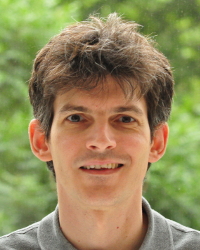
Luciano A. Marraffini, Ph.D.
The Rockefeller University
Project Title: Generation of Immunological Memory by CRISPR-Cas Systems
Grant ID: DP1-GM128184
Dr. Marraffini received his undergraduate degree from the University of Rosario in Argentina in 1998 and his Ph.D. from the University of Chicago in 2007, studying bacterial pathogenesis in the laboratory of Dr. Olaf Schneewind. He was a postdoc at Northwestern University from 2008 to 2010 with Dr. Erik Sontheimer, where he pioneered studies on CRISPR-Cas immunity. Dr. Marraffini determined that that CRISPR-Cas systems target DNA molecules in a sequence-specific manner, a study that was key to understand the mechanisms of CRISPR immunity at the molecular level. In 2010 he joined the faculty of The Rockefeller University, where he continued studies on the basic biology of the CRISPR-Cas immune response. For more information about Dr. Marraffini please visit http://marraffini.rockefeller.edu.
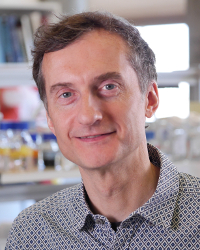
Alex Schier, Ph.D.
Harvard University
Project Title: DNA-Mediated Recording of Cellular History
Grant ID: DP1-HD094764
Alex Schier is the Leo Erikson Life Sciences Professor of Molecular and Cellular Biology at Harvard University. After receiving his B.S. and Ph.D. from the Biozentrum in Basel, Switzerland, he was a postdoctoral fellow at Harvard and MGH, and an Assistant and Associate Professor at the Skirball Institute of NYU Medical Center. Schier’s lab has contributed to the understanding of the molecular basis of vertebrate embryogenesis and the neural circuits regulating behavior, and to the development of zebrafish as a model system. Members of his lab have gone on to PI positions at leading institutions, including Princeton, Caltech, Yale, and Cambridge.
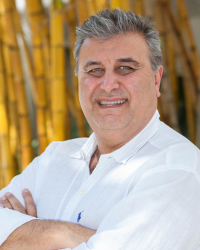
Ramin Shiekhattar, Ph.D.
Sylvester Comprehensive Cancer Center, Miller School of Medicine, University of Miami
Project Title: Enhancer RNA Therapy
Grant ID: DP1-CA228041
Ramin Shiekhattar is the Director of Cancer Epigenetics Program, Chief of Division of Cancer Genomics & Epigenetics and Professor of Human Genetics at the University of Miami Miller School of Medicine. His laboratory has made a number of seminal discoveries identifying and characterizing important mediators of epigenetic regulation and noncoding RNA processing that contribute to cancer development. Currently, the laboratory is exploring a class of long noncoding RNAs that arise from enhancer elements and behave similar to transcriptional enhancers. Importantly, the laboratory has pinpointed the RNA polymerase II-associated multiprotein complex, Integrator, as a critical component of the biogenesis machinery for these enhancer RNAs (eRNAs). The laboratory is interested in deciphering the function of Integrator and eRNAs in the context of relevant models of development and disease, using state of the arts genomics and proteomics approaches.
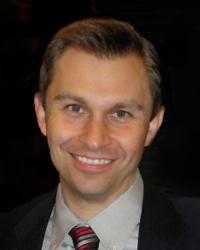
David A. Sinclair, Ph.D.
Harvard Medical School
Project Title: Uncovering the Human Secretome
Grant ID: DP1-AG058605
David A. Sinclair, Ph.D. is a tenured Professor of Genetics at Harvard Medical School, co- Director of the Paul F. Glenn Center for the Biological Mechanisms of Aging at Harvard Medical School, and a conjoint Professor at the University of New South Wales in Sydney. He is best known for his work on understanding the molecular basis of aging, and for genes and molecules that can slow the process. After postdoctoral work at M.I.T. with Lenny Guarente in the mid-late 1990’s, he moved to Harvard and shortly thereafter became founding Director of the Paul F. Glenn Center for Aging Research, a group that has grown into a consortium of 11 universities. He is a co-inventor on more than 40 patents and has co-founded biotechnology companies in the areas of aging, vaccines, fertility, diabetes, cancer, infectious disease diagnosis, and forensics. He is a cofounder and serves as co-chief editor of the scientific journal Aging and has received more than 30 awards including a Harvard Excellence in Teaching Award, an Australian Research Medal, an NIH MERIT award, and TIME magazine’s list of the “100 most influential people in the world”.
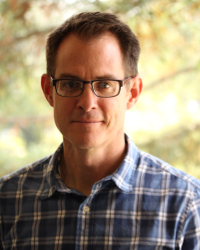
Justin L. Sonnenburg, Ph.D.
Stanford University School of Medicine
Project Title: Defining and Reconstructing the Human Ancestral Microbiome
Grant ID: DP1-AT009892
Funded by the National Center for Complementary and Integrative Health
Justin Sonnenburg, PhD, is an associate professor in the Department of Microbiology and Immunology at the Stanford University School of Medicine, where he studies the gut microbiota in health and disease and co-directs the Center for Human Microbiome Studies. He and his wife Erica, are the authors of the book The Good Gut: Taking Control of Your Weight, Your Mood, and Your Long-Term Health. An ongoing objective of their research program is to devise and implement innovative strategies to prevent and treat disease in humans via the gut microbiota. Justin conducted his Ph.D. in Biomedical Sciences at the University of California, San Diego in the laboratory of Ajit Varki; his postdoctoral work was conducted at Washington University in Saint Louis, Missouri in the laboratory of Jeffrey Gordon. He has received an NIH Director’s New Innovator Award, the Burroughs Wellcome Fund Investigators in Pathogenesis of Infectious Disease Award, and he is a co-founder of Novome Biotechnologies.

Kay M. Tye, Ph.D.
Picower Institute for Learning and Memory | Massachusetts Institute of Technology
Project Title: Neural Circuit Mechanisms of Social Homeostasis in Individuals and Supraorganismal Social Groups
Grant ID: DP1-AT009925
Funded by the National Center for Complementary and Integrative Health
Kay M. Tye graduated from MIT in 2003 with a bachelor's degree majoring in Brain & Cognitive Sciences. She entered graduate school for neuroscience at UCSF in 2004, working the in the laboratory of Patricia Janak performing electrophysiological recordings during reward-related tasks, and received her PhD in 2008. Then, in collaboration with Antonello Bonci, she identified the critical role of synaptic plasticity in the amygdala during reward-related learning. In 2009, she received her postdoctoral training in the laboratory of Karl Deisseroth at Stanford, and returned to MIT as a faculty member in 2012. Her research program has been focused on dissecting the neural circuits of emotion and motivation in rodent models.
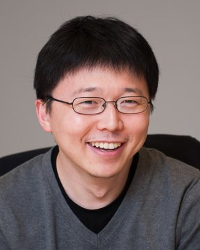
Feng Zhang, Ph.D.
Broad Institute of MIT and Harvard; MIT
Project Title: Exploration of Diverse Mobile Genetic Elements for Precision Genome Manipulation
Grant ID: DP1-HL141201
Dr. Zhang is a molecular biologist focused on developing tools to better understand brain function and treat neurological and psychiatric disorders. He played an integral role in the creation of two revolutionary tools, optogenetics and the CRISPR-Cas genome engineering system. Current research in the Zhang laboratory is centered on the development and application of the next generation of genome engineering tools to dissect the effects of genetic and epigenetic variation on the nervous system. Dr. Zhang is a core member of the Broad Institute, an Investigator at the McGovern Institute for Brain Research, the James and Patricia Poitras Professor of Neuroscience at MIT, an associate professor in the departments of Brain and Cognitive Sciences and Biological Engineering at MIT, and a New York Stem Cell Foundation-Robertson Investigator.


